The use of artificial intelligence (AI) in clinical trials has the potential to revolutionize the healthcare industry. AI tools are helping researchers accelerate the drug development process, reduce costs, and improve patient outcomes. By automating data analysis and identifying trends, AI-powered tools can optimize clinical trial design, identify potential risks and complications, and personalize treatment plans.
In this blog, we will explore the top AI tools for clinical trials and how they are transforming the way healthcare professionals approach research and development. From natural language processing (NLP) to machine learning algorithms, we will highlight the key features and benefits of each tool and how they are being used to streamline the clinical trial process. Whether you are a researcher or a healthcare professional, understanding the capabilities of these tools can help you stay ahead of the curve in this rapidly evolving field.
IBM Watson Health

IBM Watson Health is an artificial intelligence (AI) tool that offers a range of solutions to help healthcare providers improve patient outcomes, reduce costs, and enhance operational efficiency. The platform combines machine learning algorithms, natural language processing, and computer vision to extract insights from large volumes of medical data and help healthcare professionals make more informed decisions. With its ability to analyze structured and unstructured data from multiple sources, IBM Watson Health enables healthcare organizations to quickly identify patterns, predict outcomes, and generate personalized treatment plans for patients. The tool is being used in a variety of clinical settings, including oncology, radiology, cardiology, and more.
Pros
Cons
Overall Rank
Deep 6 AI

Deep 6 AI is an AI tool that leverages artificial intelligence to accelerate clinical trials and drug development. The tool can analyze structured and unstructured data from electronic health records (EHRs), pathology reports, radiology reports, and other sources to identify patients who meet specific trial criteria. Deep 6 AI can also help researchers find potential study candidates faster, reduce the time and cost of clinical trials, and improve patient outcomes. By using AI algorithms, the tool can predict the likelihood of a patient responding to a specific treatment, identify potential safety issues, and provide insights into patient populations.
Pros
Cons
Overall Rank
Mendel.ai

Mendel.ai is an AI-powered platform that assists clinicians in diagnosing rare diseases quickly and accurately. It uses advanced machine learning algorithms to analyze patient data and suggest diagnoses based on the inputted symptoms and medical history. The platform offers an intuitive interface, allowing healthcare professionals to easily input and manage patient data, and provides personalized clinical decision support based on a vast database of medical literature. Mendel.ai is particularly useful for patients with undiagnosed or misdiagnosed conditions, as it can suggest a wide range of potential diagnoses that may have been overlooked. By streamlining the diagnostic process, Mendel.ai enables doctors to provide more accurate and timely diagnoses, ultimately improving patient outcomes.
Pros
Cons
Overall Rank
CloudMedx
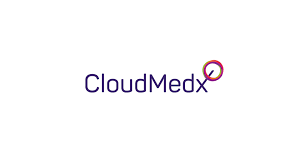
CloudMedx is an AI tool that utilizes advanced machine learning algorithms to analyze and extract meaningful insights from complex medical data. The tool is designed to provide healthcare providers with a comprehensive and real-time view of patient health data, enabling them to make faster and more accurate diagnoses, develop personalized treatment plans, and improve patient outcomes. With CloudMedx, healthcare providers can access patient data from multiple sources, including electronic health records, medical imaging, and wearable devices, and use the platform's predictive analytics capabilities to identify potential health risks before they become major issues. Additionally, CloudMedx offers an intuitive user interface that makes it easy for healthcare providers to navigate and interpret large volumes of medical data.
Pros
Cons
Overall Rank
AiCure
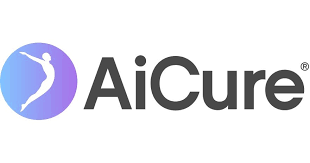
AiCure is an AI tool that uses advanced computer vision technology to monitor patients as they take medication. The tool uses a smartphone camera to capture the patient's face, and then analyzes the video to confirm that the patient has taken the correct medication at the right time. The software also tracks how the patient is responding to the medication and provides real-time updates to the patient's healthcare provider. AiCure can help patients manage complex medication regimens, ensure that patients take their medication as prescribed, and provide valuable insights into patient adherence and medication effectiveness.
Pros
Cons
Overall Rank
Clinithink

Clinithink is an AI tool that enables healthcare professionals to extract and analyze patient information from clinical documents accurately and efficiently. The tool uses natural language processing (NLP) technology to identify key clinical concepts and relationships within unstructured medical text. It then translates these concepts into structured data, providing a more comprehensive view of the patient's medical history and enabling more informed decision-making. Clinithink's AI tool can be used to aid clinical research, population health management, and risk stratification, among other applications. Overall, it offers a promising solution for healthcare professionals seeking to improve patient outcomes through data-driven decision-making.
Pros
Cons
Overall Rank
Saama

Saama AI tool is a comprehensive analytics platform that helps organizations to harness the power of big data, artificial intelligence, and machine learning. It enables businesses to easily ingest, transform, and analyze massive amounts of structured and unstructured data from a variety of sources, including cloud-based platforms and on-premise systems. The platform provides a range of advanced analytics capabilities, such as predictive modeling, natural language processing, and anomaly detection, which help users to uncover valuable insights and make informed decisions. Moreover, Saama AI tool is highly customizable and can be tailored to the specific needs of each organization, making it an ideal solution for businesses of all sizes and industries.
Pros
Cons
Overall Rank
Intellicyt
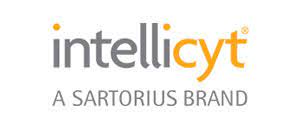
Intellicyt is an innovative AI tool that combines high-throughput screening with intelligent data analysis to provide valuable insights into complex biological systems. The platform integrates with the proprietary iQue Screener PLUS, a flow cytometry system that allows simultaneous analysis of multiple parameters at high speeds. The tool then employs advanced machine learning algorithms to transform raw data into actionable insights, facilitating data-driven decision-making in various fields, including drug discovery, immuno-oncology, and immunology research. Intellicyt's AI capabilities enable researchers to identify critical cellular interactions, track disease progression, and optimize therapeutic efficacy, resulting in accelerated discovery timelines and improved patient outcomes. With its exceptional data analysis capabilities and seamless integration with iQue Screener PLUS, Intellicyt offers an unparalleled approach to high-throughput screening, making it an indispensable tool for researchers seeking to unlock the complexities of biological systems.
Pros
Cons
Overall Rank
Ayasdi

Ayasdi is an AI tool that leverages topological data analysis (TDA) to provide insights and analytics for complex datasets. TDA helps to identify patterns and relationships between data points that may not be immediately apparent through traditional analytical methods. Ayasdi's platform enables users to visualize and explore these patterns, identify anomalies, and uncover hidden insights. Its applications span across various industries, including healthcare, finance, and energy. For instance, Ayasdi has been used to analyze electronic health records and improve patient outcomes by identifying patient cohorts with similar conditions and predicting patient outcomes. It has also been used in financial institutions to detect fraud and improve risk management.
Pros
Cons
Overall Rank
Medidata

Medidata is a leading cloud-based platform that provides a suite of tools and applications for clinical trial management, including an AI tool that leverages machine learning algorithms to improve clinical trial efficiency. The Medidata AI tool utilizes historical data from past trials to optimize trial design, predict patient enrollment rates, and identify potential issues before they occur. By streamlining trial design and execution, the tool can reduce costs, accelerate timelines, and improve patient outcomes. Additionally, the AI tool can improve data quality by automatically detecting errors and inconsistencies in real-time, allowing for faster resolution of issues and increased data accuracy.
Pros
Cons
Overall Rank
Science 37
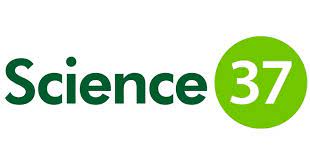
Science 37 AI tool is a powerful platform that leverages artificial intelligence to transform clinical trials. This platform aims to reduce the cost and complexity of traditional clinical trials by providing a virtual, patient-centric approach. With Science 37 AI tool, patients can participate in clinical trials from the comfort of their own homes, using mobile devices and wearable technology to collect data. The platform also streamlines the recruitment and enrollment process, making it easier for patients to find and participate in trials that are a good match for their needs. Overall, Science 37 AI tool has the potential to revolutionize the way we conduct clinical trials, making them more accessible, efficient, and cost-effective.
Pros
Cons
Overall Rank
Cyft
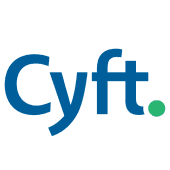
Cyft is a healthcare-focused artificial intelligence tool that uses machine learning to help healthcare organizations make better use of their data. The tool is designed to analyze data from various sources, such as electronic health records (EHRs), claims data, and patient-generated data, to identify patterns and insights that can help improve patient outcomes, reduce costs, and enhance operational efficiency. With Cyft, healthcare providers can quickly identify high-risk patients, forecast patient volumes, and analyze population health trends. The tool also enables organizations to monitor quality metrics and track performance in real-time, making it easier to identify areas that require improvement and take proactive measures to address them.
Pros
Cons
Overall Rank
OWKIN

OWKIN is an innovative artificial intelligence tool that leverages machine learning to analyze medical data and help researchers develop new treatments. The platform enables medical experts to share their expertise and collaborate on research projects to accelerate the discovery of new drugs and therapies. With its cutting-edge algorithms, OWKIN can uncover new insights in medical data that may be difficult to detect with traditional methods. It also offers a secure and privacy-preserving approach to data sharing, which is essential in the medical field. OWKIN's unique approach to AI-powered medical research has the potential to revolutionize the healthcare industry and improve patient outcomes.
Pros
Cons
Overall Rank
TriNetX

TriNetX is an AI-powered tool used in clinical research to efficiently extract and analyze large-scale clinical data from electronic health records (EHRs). The platform is capable of aggregating real-time data from over 300 million patient records across more than 20 countries, enabling researchers to generate insights quickly and effectively. TriNetX's machine learning algorithms can identify patient cohorts based on specific criteria, such as disease status, demographics, and medical history, allowing for efficient and targeted recruitment of participants for clinical trials. Additionally, the platform provides visualization tools that enable users to analyze complex data sets in an intuitive and user-friendly manner.
Pros
Cons
Overall Rank
Castor EDC

Castor EDC AI tool is a powerful electronic data capture software that leverages machine learning and artificial intelligence to automate clinical data management. It offers a user-friendly interface and flexible customization options, making it a popular choice among clinical researchers. With Castor EDC AI, researchers can easily create online forms, design study workflows, and collect, manage, and analyze data in real-time. Additionally, it comes with robust security features and adheres to international data protection regulations, ensuring the confidentiality and integrity of study data. Castor EDC AI also offers seamless integration with third-party applications, making it an ideal choice for multi-center studies and collaborations.
Pros
Cons
Overall Rank
Datavant

Datavant is an AI-powered platform that enables healthcare organizations to securely share and analyze sensitive patient data. It uses advanced algorithms to match and merge fragmented patient data across different sources, providing a comprehensive view of patient health. This allows healthcare providers to improve patient outcomes, develop new treatments, and optimize resource allocation. The platform uses de-identification techniques to protect patient privacy and ensure compliance with regulatory requirements. Datavant also offers data enrichment and analytics tools, which enable users to derive insights from large and complex datasets. With its ability to unlock the value of healthcare data, Datavant has the potential to transform the healthcare industry and improve the quality of care for patients.
Pros
Cons
Overall Rank
In conclusion, the use of AI tools in clinical trials is transforming the way healthcare professionals approach research and development. AI-powered tools are proving to be valuable assets in accelerating clinical trials and producing more accurate results. By utilizing machine learning algorithms, AI tools can help identify patient populations, predict potential risks and complications, and optimize treatment plans. One of the most significant advantages of using AI tools in clinical trials is that they can help reduce the time and cost associated with traditional research methods. By streamlining the process, AI-powered tools enable researchers to gather and analyze data more efficiently, allowing for quicker identification of drug efficacy and potential side effects. Additionally, the ability to analyze large amounts of data helps identify new patterns and trends that may not have been discovered using traditional research methods. Overall, AI tools are an essential component in the future of clinical trials and have the potential to transform the way healthcare professionals approach research. While there is still much to be explored in this field, the advancements in AI technology have paved the way for more efficient, accurate, and cost-effective clinical trials. By embracing the capabilities of AI-powered tools, researchers and healthcare professionals can work together to improve patient outcomes and ultimately, advance the field of medicine.
